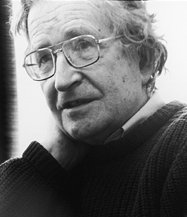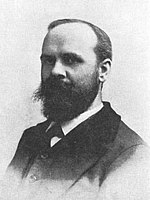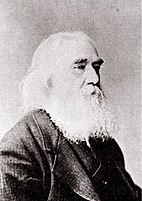Left-libertarianism
| Part of a series on |
| Libertarianism |
|---|
Left-libertarianism,
In the United States, left-libertarianism represents the left wing of the
Left-libertarians are skeptical of, or fully against, private ownership of natural resources, arguing, in contrast to right-libertarians, that neither claiming nor
Terminology
Libertarianism is a philosophy that advocates for freedom, whether political, economical or metaphysical.[12] The political definition of the term "libertarian" (from the French: libertaire) was coined by the French anarchist communist Joseph Déjacque in 1857, whereafter libertarianism became synonymous with anarchism.[13] The term was widely used by anarchists until the 1970s, when libertarianism first started to be associated with a radical free market philosophy, particularly in the United States.[14]
The oldest, traditional, definition of "left-libertarianism" used it synonymously with social anarchism.[15] Seeking to distinguish themselves from the new generation of free-market libertarians, social anarchists began referring to themselves as "left-libertarians",[16] while the new adoptees of the term became known as "right-libertarians".[17]
At the same time as social anarchists began using the term to distinguish themselves from free-market libertarians, some of the advocates of free market economics that were associated with the New Left, including Roy Childs and Samuel Konkin, also began referring to themselves as "left-libertarians" in order to highlight themselves as the left-wing of the new free-market libertarian movement.[12] As anti-capitalist advocates of free-market economics, they used the term "left-libertarian" in order to distinguish themselves from the right-wing advocates of libertarian capitalism.[18]
By the turn of the 21st century, some analytic philosophers had also adopted the label of "left-libertarianism".[12] This contemporary model of left-libertarianism, associated mainly with Peter Vallentyne and Hillel Steiner,[19] distinguishes itself from right-libertarianism in its advocacy of the social ownership and equitable distribution of natural resources, while also upholding the libertarian principle of self-ownership.[20]
Philosophy
While all libertarians begin with a conception of personal autonomy from which they argue in favor of civil liberties and a reduction or elimination of the state, left-libertarianism encompasses those libertarian beliefs that claim the Earth's natural resources belong to everyone in an egalitarian manner, either unowned or owned collectively.[3][4][8][10][11]
Contemporary left-libertarians such as Hillel Steiner, Peter Vallentyne, Philippe Van Parijs, Michael Otsuka, and David Ellerman believe the appropriation of land must leave "enough and as good" for others or be taxed by society to compensate for the exclusionary effects of private property.[21][10]
State
There are a number of different left-libertarian positions on the state, which can range from advocating for the complete abolition of the state, to advocating for a more decentralized and limited government with social ownership of the economy.[22] According to Sheldon Richman of the Independent Institute, other left-libertarians "prefer that corporate privileges be repealed before the regulatory restrictions on how those privileges may be exercised."[23]
Property rights
Left-libertarians generally uphold
Political scientist Peter Mclaverty notes it has been argued that socialist values are incompatible with the concept of self-ownership when this concept is considered "the core feature of libertarianism" and socialism is defined as holding "that we are social beings, that society should be organised, and individuals should act, so as to promote the common good, that we should strive to achieve social equality and promote democracy, community and solidarity."[28] However, political philosopher Nicholas Vrousalis has also argued that "property rights [...] do not pass judgment as to what rights individuals have to their own person [...] [and] to the external world" and that "the nineteenth-century egalitarian libertarians were not misguided in thinking that a thoroughly libertarian form of communism is possible at the level of principle."[29]
Economics
Other left-libertarians make a libertarian reading of
Schools of thought
Classical liberalism
Contemporary left-libertarian scholars such as
Individuals in this left-libertarian tradition include Henry George, Locke, Thomas Paine, William Ogilvie of Pittensear, Herbert Spencer, and more recently, Baruch Brody, Ellerman, James O. Grunebaum, Otsuka, Steiner, Vallentyne and Van Parijs, among others.[21][35] Hippolyte de Colins,[36] George,[36] François Huet,[36] William Ogilvie of Pittensear,[35] Paine,[36] and Léon Walras[36] are left-libertarians also seen as being within the left-liberal tradition of socialism.[35]
Philosophical anarchist
Green politics
Bookchin was one of the main influences behind the formation of the Alliance 90/The Greens, the first green party to win seats in state and national parliaments. Modern green parties attempt to apply these ideas to a more pragmatic system of democratic governance as opposed to contemporary individualist or socialist libertarianism. The green movement, especially its more left-wing factions, is often described by political scientists as left-libertarian.[42][43][44][45]
Political scientists see European political parties such as Ecolo and Groen in Belgium, Alliance 90/The Greens in Germany, or the Green Progressive Accord and GroenLinks in the Netherlands as coming out of the New Left and emphasizing spontaneous self-organisation, participatory democracy, decentralization and voluntarism, being contrasted to the bureaucratic or statist approach.[45] Similarly, political scientist Ariadne Vromen has described the Australian Greens as having a "clear left-libertarian ideological base."[46]
Libertarian socialism

Libertarian socialism is a left-libertarian tendency
Market-oriented left-libertarianism
Also referred to as left-wing market anarchists,[52] according to Sheldon Richman in The American Conservative, these proponents of this market-oriented left-libertarian approach strongly affirm the classical liberal ideas of self-ownership and free markets, while maintaining that, taken to their logical conclusions, these ideas support strongly anti-corporatist, anti-hierarchical, pro-labor positions in economics; anti-imperialism in foreign policy; and thoroughly liberal or radical views regarding such cultural issues as gender, sexuality and race.[23] Members of this school typically urge the abolition of the state, arguing that vast disparities in wealth and social influence result from the use of force—especially state power—to steal and engross land and acquire and maintain special privileges. They judge that in a stateless society the kinds of privileges secured by the state will be absent and injustices perpetrated or tolerated by the state can be rectified, concluding that with state interference eliminated it will be possible to achieve "socialist ends by market means."[53]
According to libertarian Sheldon Richman, left-libertarians "favor worker solidarity vis-à-vis bosses, support poor people's squatting on government or abandoned property, and prefer that corporate privileges be repealed before the regulatory restrictions on how those privileges may be exercised." Richman says left-libertarians see Walmart as a symbol of corporate favoritism, being "supported by highway subsidies and eminent domain", viewing "the fictive personhood of the limited-liability corporation with suspicion" and doubting that "Third World sweatshops would be the 'best alternative' in the absence of government manipulation." Richman also says left-libertarians also tend to "eschew electoral politics, having little confidence in strategies that work through the government [and] prefer to develop alternative institutions and methods of working around the state."[23]
In the 21st century, left-libertarianism has come to encapsulate forms of
Steiner–Vallentyne school
Contemporary left-libertarian scholars such as
Scholars representing this school of left-libertarianism often understand their position in contrast to right-libertarians, who maintain that there are no fair share constraints on use or appropriation that individuals have the power to appropriate unowned things by claiming them (usually by mixing their labor with them) and deny any other conditions or considerations are relevant and that there is no justification for the state to redistribute resources to the needy or to overcome
Left-libertarians of the Steiner–Vallentyne type hold that it is illegitimate for anyone to claim private ownership of natural resources to the detriment of others.[21] These left-libertarians support some form of income redistribution on the grounds of a claim by each individual to be entitled to an equal share of natural resources.[64][65] Unappropriated natural resources are either unowned or owned in common and private appropriation is only legitimate if everyone can appropriate an equal amount or if private appropriation is taxed to compensate those who are excluded from natural resources.[65]
See also
- Cellular democracy
- Civil libertarianism
- Cultural liberalism
- Cultural radicalism
- Drug liberalization
- Grassroots democracy
- Individualist feminism
- Left-libertarians (category)
- Libertarian Democrat
- Libertarian municipalism
- Libertarian paternalism
- Libertarian transhumanism
- Lockean proviso
- Market socialism
- Neoclassical liberalism
- Outline of libertarianism
- Radical movement
- Refusal of work
References
- ^ Bookchin, Murray; Biehl, Janet (1997). The Murray Bookchin Reader. New York: Cassell. p. 170.
- ^ Carlson 2012, p. 1006; Goodway 2006, p. 4; Marshall 2008, p. 641.
- ^ a b Spitz, Jean-Fabien (March 2006). "Left-wing libertarianism: equality based on self-ownership". Raisons Politiques. 23 (3). Archived from the original on 23 March 2019. Retrieved 28 November 2019.
- ^ a b c d e f Long 2012, p. 227.
- ^ Long 2012, p. 227; Kymlicka 2005, p. 516.
- ^ Carlson 2012, p. 1009.
- ISBN 0304338737.
- ^ Carson, Kevin. "An Introduction to Left-Libertarianism". Center for a Stateless Society. Archived from the original on 2019-09-03. Retrieved 2023-01-01.
- ^ a b c Vallentyne, Peter (March 2009). "Libertarianism". In Zalta, Edward N. (ed.). Stanford Encyclopedia of Philosophy (Spring 2009 ed.). Stanford, CA: Stanford University. Archived from the original on 6 July 2019. Retrieved 5 March 2010.
Libertarianism is committed to full self-ownership. A distinction can be made, however, between right-libertarianism and left-libertarianism, depending on the stance taken on how natural resources can be owned.
- ^ from the original on 2023-01-09. Retrieved 2016-03-18.
Left libertarians regard each of us as full self-owners. However, they differ from what we generally understand by the term libertarian in denying the right to private property. We own ourselves, but we do not own nature, at least not as individuals. Left libertarians embrace the view that all natural resources, land, oil, gold, and so on should be held collectively. To the extent that individuals make use of these commonly owned goods, they must do so only with the permission of society, a permission granted only under the proviso that a certain payment for their use be made to society at large.
- ^ a b c Long 2021, p. 30.
- ^ Long 2021, p. 30; Marshall 2008, p. 641.
- ^ Long 2021, p. 30; Marshall 2008, pp. 641–642.
- ^ Goodway 2006, pp. 1–4; Long 2012, p. 227.
- ^ Goodway 2006, p. 4; Long 2017, p. 308n104; Long 2021, p. 30.
- ^ Goodway 2006, p. 4; Long 2021, p. 30.
- ^ Long 2017, p. 308n104.
- ^ Kymlicka 2005, pp. 516–517; Long 2012, p. 227.
- ^ Kymlicka 2005, p. 516; Long 2012, p. 227; Long 2021, p. 30.
- ^ a b c Kymlicka 2005, p. 516.
- ISBN 978-1604860641.
- ^ a b c d e Richman, Sheldon (2011-02-03). "Libertarian Left". The American Conservative. Archived from the original on 2023-01-01. Retrieved 2023-01-01.
- ^ Carlson 2012, p. 1006.
- ^ Carlson (2012). p. 1007. "[Left-libertarians] disagree with right-libertarians with respect to property rights, arguing instead that individuals have no inherent right to natural resources. Namely, these resources must be treated as collective property that is made available on an egalitarian basis."
- from the original on 2023-01-09. Retrieved 2016-03-18.
[Left libertarians] regard each of us as full self-owners. Left libertarians embrace the view that all natural resources, land, oil, gold, trees, and so on should be held collectively. To the extent that individuals make use of these commonly owned goods, they must do so only with the permission of society, a permission granted only under the provision that a certain payment for their use be made to society at large.
- ^ The Stanford Encyclopedia of Philosophy (Summer 2014 ed.). Metaphysics Research Lab, Stanford University. Archivedfrom the original on 2024-02-08. Retrieved 2023-01-01.
- S2CID 144693867.
- SSRN 1703457.
- ISBN 978-1137313096.
- ^ Kymlicka, Will (2005). "libertarianism, left-". In Honderich, Ted. The Oxford Companion to Philosophy. New York: Oxford University Press. "[Left-libertarians maintain that] the world's natural resources were initially unowned, or belonged equally to all, and it is illegitimate for anyone to claim exclusive private ownership of these resources to the detriment of others. Such private appropriation is legitimate only if everyone can appropriate an equal amount, or if those who appropriate more are taxed to compensate those who are thereby excluded from what was once common property."
- ISBN 978-0-7619-6787-3. Archivedfrom the original on 2017-10-10. Retrieved 2016-03-18.
- ^ Van Parijs, Phillippe (1998). Real Freedom for All: What (If Anything) Can Justify Capitalism? Oxford: Clarendon-Oxford University Press.
- ^ a b Daskal, Steve (1 January 2010). "Libertarianism Left and Right, the Lockean Proviso, and the Reformed Welfare State". Social Theory and Practice. p. 1. Archived 16 May 2011 at the Wayback Machine.
- ^ JSTOR 3557982.
- ^ ISBN 978-8120347137.
- ISBN 978-1441153777.
- ^ ISBN 978-0198847878.
- .
- ISBN 0521893429.
- ISBN 978-1441153777.
- from the original on 2019-06-07. Retrieved 2019-11-30.
- from the original on 2020-08-06. Retrieved 2019-11-30.
- ^ Van Kersbergen, Kees; Green-Pedersen, Christoffer (2002). "The Politics of the 'Third Way': The Transformation of Social Democracy in Denmark and the Netherlands" Archived 2006-10-17 at the Wayback Machine. Party Politics. 8 (5): 507–524.
- ^ from the original on 2019-05-11. Retrieved 2019-11-29.
- ^ Vromen, Ariadne (2005). "Who are the Australian Greens? Surveying the membership". Ethnographic Praxis in Industry. Retrieved 15 July 2020.
- LCCN 98-71026.
The most creative feature of traditional anarchism is its commitment to four basic tenets: a confederation of decentralized municipalities; an unwavering opposition to statism; a belief in direct democracy; and a vision of a libertarian communist society. The most important issue that left-libertarianism -libertarian socialism no less than anarchism- faces today is: What will it do with these four powerful tenets? How will we give them social form and content? In what ways and by what means will we render them relevant to our time and bring them to the service of an organized popular movement for empowerment and freedom?
- JSTOR 3487815.
In this, Tucker and George, the Anarchist and the Single Taxer, were in agreement-their respective positions can be seen as variations of libertarian socialism or, to borrow a label from Peter Valentyne and Hillel Steiner, Left-Libertarianism.
- ^ Long, Roderick T. (Summer 1998). "Toward a libertarian theory of class". Social Philosophy and Policy. 15 (2): 305. "Unlike other socialists, they tend to see (to various different degrees, depending on the thinker) to be skeptical of centralized state intervention as the solution to capitalist exploitation [...]."
- ISBN 978-1849351225.
- ^ Carson, Kevin. "The Left-Rothbardians, Part I: Rothbard". Center for a Stateless Society. Archived from the original on 2019-09-24. Retrieved 2023-01-01.
What most people ordinarily identify as the stereotypical "libertarian" privatization proposal, unfortunately, goes something like this: sell it to a giant corporation on terms that are most advantageous to the corporation. Rothbard proposed, instead, was to treat state property as unowned, and allowing it to be homesteaded by those actually occupying it and mixing their labor with it. This would mean transforming government utilities, schools and other services into consumer cooperatives and placing them under the direct control of their present clientele. It would mean handing over state industry to workers' syndicates and transforming it into worker-owned cooperatives.
- ^ Chartier, Gary; Johnson, Charles W. (2011). Markets Not Capitalism. Brooklyn: Minor Compositions/Autonomedia. pp. 1–16.
- ^ Chartier, Gary (2009). Socialist Ends, Market Means: Five Essays. Tulsa: Tulsa Alliance of the Libertarian Left.
- ^ Ellerman, David (1992). Property and Contract in Economics: The Case for Economic Democracy. Cambridge MA: Blackwell.
- ^ Ellerman, David (1990). The Democratic Worker-Owned Firm. London: Unwin Hyman.
- ISBN 978-0199280186.
- ^ Steiner, Hillel (1994). An Essay on Rights. Oxford: Blackwell.
- ^ (2000). Left Libertarianism and Its Critics: The Contemporary Debate. In Vallentyne, Peter; and Steiner, Hillel. London:Palgrave.
- ^ Van Parijs, Philippe (2009). Marxism Recycled. Cambridge: Cambridge University Press.
- ^ Vallentyne, Peter (2007). "Libertarianism and the State". Liberalism: Old and New. In Paul, Ellen Frankel; Miller Jr., Fred; Paul, Jeffrey. Cambridge: Cambridge University Press. p. 199.
- (PDF) from the original on 14 March 2014. Retrieved 14 March 2014.
It can also invoke geoism, a philosophical tradition encompassing the views of John Locke and Henry George [...].
- ^ Van Parijs, Phillippe (1998). Real Freedom for All: What (If Anything) Can Justify Capitalism? Oxford:Clarendon-Oxford University Press.
- ISBN 978-0312235918.
- OCLC 1057919438.
- ^ ISBN 978-0-7619-6787-3. Archivedfrom the original on 2024-02-08. Retrieved 2023-01-29.
Bibliography
- Carlson, Jennifer D. (2012). "Libertarianism". In Miller, Wilbur R. (ed.). The Social History of Crime and Punishment in America: An Encyclopedia. Sage Publications. p. 1005-1009. ISBN 978-1412988766.
- Goodway, David (2006). Anarchist Seeds Beneath the Snow: Left-libertarian Thought and British Writers from William Morris to Colin Ward. ISBN 978-1-84631-025-6.
- Long, Roderick T. (2012). "Anarchism". In Gaus, Gerald F.; D'Agostino, Fred (eds.). The Routledge Companion to Social and Political Philosophy. Taylor & Francis Group. pp. 217–230. ISBN 978-0415874564.
- Long, Roderick T. (2017). "Anarchism and Libertarianism". In Jun, Nathan (ed.). Brill's Companion to Anarchism and Philosophy. ISBN 978-90-04-35689-4.
- Long, Roderick T. (2021). "The Anarchist Landscape". In Chartier, Gary; Van Schoelandt, Chad (eds.). The Routledge Handbook of Anarchy and Anarchist Thought. pp. 28–38. ISBN 978-1-315-18525-5.
- ISBN 0-19-926479-1.
- OCLC 218212571.
Further reading
- ISBN 978-1610160407.
- Sleakes, Lorenzo (2016). "The Natural Rights of Ownership"
- doi:10.1111/j.1088-4963.2005.00030.x. Archived from the original(PDF) on 11 September 2008.
- Vallentyne, Peter (2000). "Left-Libertarianism: A Primer" (full text; final draft). In Vallentyne, Peter; Steiner, Hillel (eds.). Left Libertarianism and Its Critics: The Contemporary Debate. Palgrave Publishers Ltd. pp. 1–20.
External links
 Media related to Left-libertarianism at Wikimedia Commons
Media related to Left-libertarianism at Wikimedia Commons Quotations related to Left-libertarianism at Wikiquote
Quotations related to Left-libertarianism at Wikiquote


